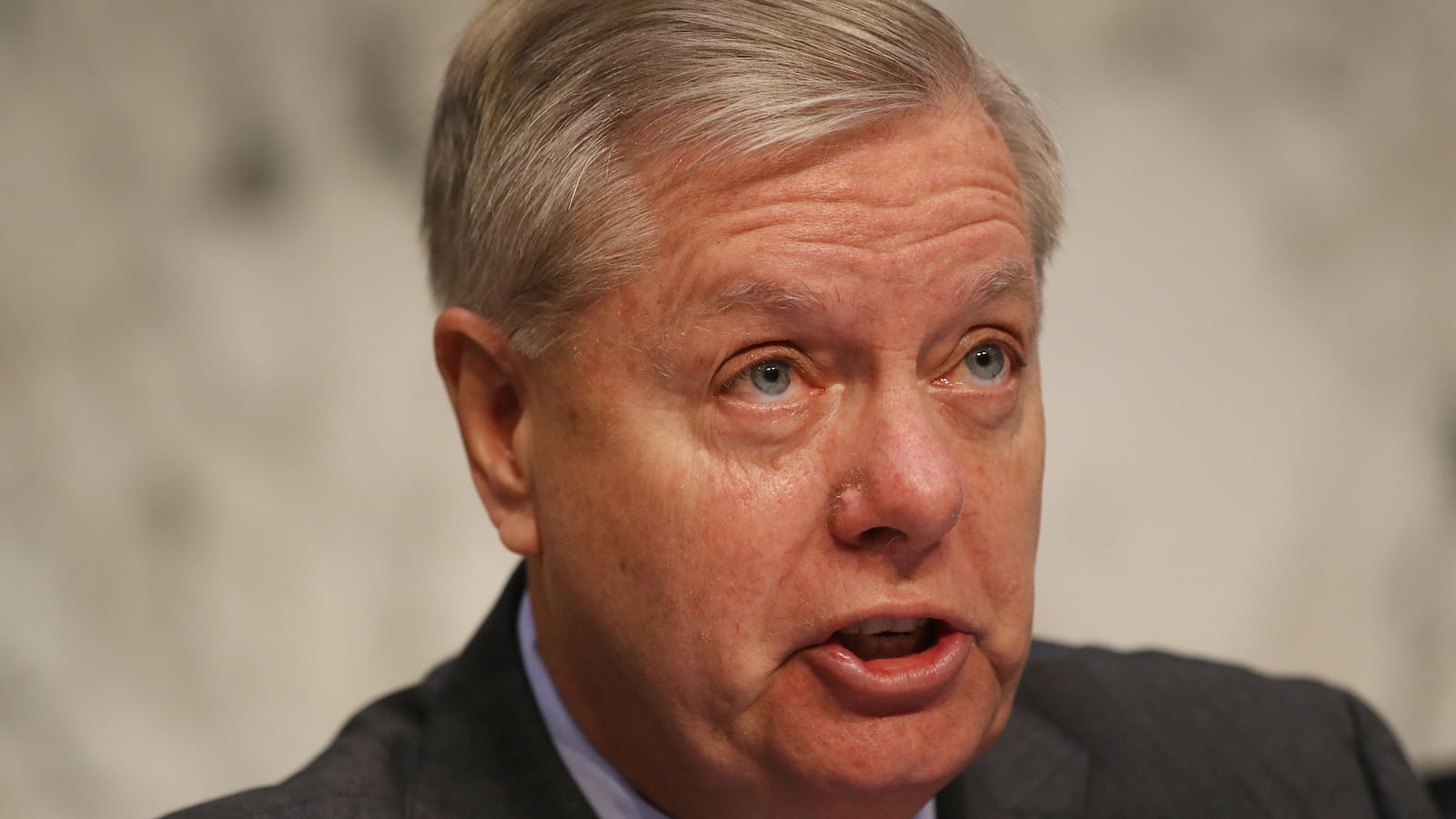Newly minted Senate Judiciary Committee Chairman Lindsey Graham (R-SC) wasted no time in bringing in right-wing conspiracy theories about FBI and Justice Department misconduct into the confirmation hearing of President Trump’s attorney general nominee William Barr, asking him to “clean up this place” should he be installed as the nation’s top cop.
Graham began by referencing a Jan. 11 New York Times article that reported that after the firing of FBI Director James Comey, the agency took the extraordinary step of opening a counterintelligence investigation into Trump for fear he was working against American interests for Russia.
“Are there rules about how you can do counterintelligence investigations?” Graham asked.
When Barr replied there were—in fact, they’re contained in official department guidelines—Graham asked if there were “checks and balances” if one was opened up against the president.
“Not outside of the FBI,” he said.
Graham replied, “Well, we need to look at that.”
He then moved on to conservative bête noires, former FBI lawyer Lisa Page and counterintelligence Special Agent Peter Strzok, reading to Barr their infamous text messages that disparaged then-candidate Trump.
“I was shocked when I saw them,” Barr said, when Graham asked his reaction to the texts.
“In terms of people that are actually enforcing the law, don’t we want to make sure they don’t have an agenda?” Graham asked.
Barr agreed.
“Please get the bottom of it, I promise you, we will protect the investigation but we’re relying upon you to clean this place up,” Graham said.
During his opening statement, Barr promised to enforce “special counsel regulations scrupulously and in good faith, and on my watch, Bob [Mueller] will be allowed to finish his work.”
When Graham asked Barr about his relationship with Mueller, Barr agreed the special counsel was fair-minded and a “good friend.”
“Do you believe Mr. Mueller would be involved in a witch hunt against anybody?” Graham asked.
“I don’t believe Mr. Mueller would be involved in a witch hunt,” Barr replied.
It wasn’t the only defense of his good friend that Barr provided. When Sen. Patrick Leahy (D-VT) asked if there were circumstances that would justify firing Mueller, Barr said it would be “unthinkable” that Mueller would commit misconduct warranting his removal, and said even if there was an argument that Mueller had, any hypothetical misdeed would have to be “pretty grave.”
Barr also backtracked from the implications of his now-infamous June 2018 memo that appeared to lambaste Mueller for investigating Trump over obstruction of justice. Under repeated questioning, Barr said he was speculating about Mueller’s theory of obstruction, rather than asserting what it in fact is.
“I was not calling Mueller grossly irresponsible,” Barr said. Asked by Sen. Dianne Feinstein (D-CA) if he received any nonpublic information about the Mueller probe, Barr hedged: “I don’t recall getting any confidential information about the investigation.”
Asked by Leahy if, as Trump attorney Rudy Giuliani suggested, Trump ought to get to “correct” Mueller’s investigative report, Barr replied: “That will not happen.”
The former and perhaps next attorney general also confirmed that he had discussed joining Trump’s personal defense team in June 2017—but decided to turn the president down.
At the behest of David Freedman, then as now the U.S. ambassador to Israel, Barr agreed to meet with Trump at the White House. It was the month after Trump had fired FBI Director Jim Comey and the deputy attorney general, Rod Rosenstein, had appointed Mueller as special counsel. Barr said he had already made up his mind to avoid what he called the “burden” of representing Trump, who asked him for his assessment of Mueller.
“He’s a straight shooter and should be dealt with as such,” Barr recalled telling Trump. Trump took his phone number and, Barr said, they didn’t interact until Trump offered him the leadership of the Justice Department.
With his memo on the Mueller probe a critical factor in his confirmation hearing, Barr archly dismissed as “ludicrous” that he penned it to seek a job in the administration.
“If I wanted the job and was going after it, there are more effective ways than writing an 18-page” memorandum for a president whom Graham at one point noted was more of a “one-pager” sort of person.







